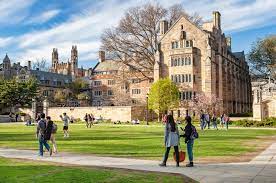Schools and Universities in Japan that Accept HND Certificates, Second Class and 3rd Class for Masters Degree Programs
Many students are unaware that they can pursue a master’s degree in Japan even if they have an HND certificate or second-class or 3rd class qualifications. Many universities in Japan will accept students with these credentials. Whether you are looking to pursue a master’s degree in engineering, business, or the arts, some options are available.
In this article, we will explore the various schools and universities in Japan that will accept students with HND certificates, second class or 3rd class qualifications. We will also provide information on the admissions process and the cost of studying in Japan.
Criteria For Master’s Degree Admission in Schools and Universities in Japan
Japan offers a unique blend of traditional and modern education, making it a sought-after destination for international students. When aiming for a Master’s degree program in Japan, particularly for those with HND certificates, Second Class, and Third Class bachelor’s degrees, it’s essential to understand the specific admission criteria set by schools and universities. Here is a comprehensive outline of the general requirements:
- Entrance Examinations: Some schools and universities may require applicants to take entrance exams. These can range from general knowledge tests to specific subject tests related to the Master’s program being applied for.
- Research Proposal: Particularly for research-focused Master’s programs, candidates may need to submit a detailed research proposal. This should outline the proposed area of study, research objectives, methodology, and how it contributes to the field.
- Letters of Recommendation: Letters from academic or professional references can significantly bolster an application. Typically, two letters are required, attesting to the applicant’s academic abilities, character, and suitability for graduate study.
- Interviews: Depending on the institution, an interview (in person or via teleconferencing) may be part of the application process. This gives the admissions committee a chance to assess the applicant’s communication skills, motivation, and overall fit for the program.
- Financial Proof: International students may need to demonstrate they have sufficient funds to cover tuition and living expenses during their study period. This can be in the form of bank statements, scholarship awards, or sponsorship letters.
Meeting these criteria does not guarantee admission, as competition can be fierce, and each school or university has its own selection process. However, understanding and preparing for these requirements can significantly improve an applicant’s chances of being accepted into a Master’s degree program in Japan.
Read Also: PRESSID Presidential Special Scholarship Application 2024/2025
Schools in Japan that Accept HND Certificates, Second Class and 3rd Class for Masters Degree Programs
These institutions recognize the value and potential of students from diverse academic backgrounds. Here is a list of notable schools in Japan that cater to such students:
1) Tokyo Institute of Technology
Known for its strong emphasis on science and technology, Tokyo Institute of Technology provides a platform for students with practical diplomas like HND, and those who have graduated with Second Class and Third Class honors, to advance their studies in a highly innovative environment. The institution values practical experience and the unique perspectives that students from various academic standings bring to the table.
2) Osaka University
Offering a variety of English-taught Master’s programs, Osaka University is another prestigious institution that accepts students with HND certificates and those who have obtained Second Class and Third Class degrees. The university is keen on attracting international talent and provides a supportive environment for research and learning.
3) Waseda University
With a wide range of programs taught in English, Waseda University is committed to global education and inclusivity. It extends its admission to students holding HND certificates and those with Second Class and Third Class degrees, focusing on the individual’s potential for growth and contribution to their field of study.
4) Kyoto University
Renowned for its research achievements, Kyoto University encourages applications from international students with diverse academic records, including HND holders and those graduating with lower class degrees. The university looks beyond academic grades, assessing applicants on their overall potential, research proposals, and ability to contribute to the academic community.
5) Hokkaido University
This institution offers various research-led Master’s programs that welcome students with HND certificates and second-class and Third-class bachelor’s degrees. Hokkaido University is particularly noted for its supportive academic environment that fosters innovation and creativity among its students.
Each of these schools has set a precedent in recognizing students’ potential from varied educational backgrounds, ensuring that the pursuit of higher education in Japan is accessible and achievable. Prospective students are encouraged to directly contact the admissions office of these institutions for detailed information on application processes and specific admission requirements related to their academic history and program of interest.
Universities in Japan that Accept HND Certificates, Second Class and 3rd Class for Masters Degree Programs
Fortunately, several universities across Japan are opening their doors wider to embrace the talents and potential of these students. Here’s a look at some of these inclusive institutions:
1) Keio University
This prestigious university, known for its commitment to global education and innovation, offers several Master’s programs that are tailored to meet the needs of students with varied academic backgrounds. Keio University emphasizes a holistic review process, taking into account the unique experiences and perspectives that each student brings.
2) Nagoya University
With a strong focus on research and development, Nagoya University provides opportunities for students with HND certificates and those who have earned Second Class and Third Class degrees to pursue advanced studies. The university prides itself on a diverse campus community and supportive academic environment.
3) Hitotsubashi University
Specializing in the social sciences, Hitotsubashi University is another excellent choice for students seeking Master’s programs in Japan. It values the practical knowledge and real-world experiences that students with HND certificates and lower class degrees often possess, integrating these perspectives into its innovative curriculum.
4) Kyushu University
Offering a range of English-taught Master’s programs, Kyushu University is keen on attracting international talent from various academic standings. It supports students in their pursuit of higher education and research, emphasizing the importance of diversity and inclusion in academia.
5) Tohoku University
Known for its pioneering research and academic excellence, Tohoku University extends its Master’s degree programs to include those with HND certificates and Second Class and Third Class bachelor’s degrees. The university fosters a culture of innovation, where students from all backgrounds can thrive and contribute to their fields of study.
These universities represent just a handful of the many institutions in Japan that recognize the value of inclusive education. By offering flexible admission criteria for Master’s programs, they ensure that students from diverse educational pathways have the opportunity to pursue their academic and professional goals in Japan. Prospective students should reach out directly to these universities for more detailed information on specific program requirements and application procedures.
FAQS
What is the requirement for Master in Japan?
The requirements for Master’s programs in Japan can vary depending on the university and the specific program. However, common requirements typically include holding a Bachelor’s degree or an equivalent qualification from a recognized institution, proficiency in the language of instruction (usually Japanese or English), and fulfilling any additional program-specific criteria such as entrance examinations or interviews.
Can I do my Masters with HND certificate?
While it ultimately depends on the policies of the specific university and program, generally, Master’s programs abroad, including in Japan, typically require applicants to hold a Bachelor’s degree or an equivalent qualification for admission. While Higher National Diplomas (HNDs) are recognized qualifications, they may not always be accepted as equivalent to a Bachelor’s degree by all universities.
Can I do Masters abroad with second class lower?
Yes, it’s possible to pursue a Master’s degree abroad, including in countries like Japan, with a Second Class Lower classification. While some universities may have minimum GPA or classification requirements for admission to Master’s programs, many institutions consider applicants holistically, taking into account factors such as relevant work experience, letters of recommendation, and statements of purpose.
Does Sweden University accept HND for Masters?
Sweden generally requires applicants to have completed a Bachelor’s degree or an equivalent qualification for admission to Master’s degree programs. While Higher National Diplomas (HNDs) are recognized qualifications, their acceptance for admission to Master’s programs in Sweden may vary depending on the university and the specific program.
Can a 3rd class do Masters?
Yes, it’s possible for individuals with a Third Class classification in their Bachelor’s degree to pursue a Master’s degree. While some universities may have minimum GPA or classification requirements for admission to Master’s programs, many institutions consider applicants holistically, taking into account factors such as relevant work experience, letters of recommendation, and statements of purpose.
Conclusion
To sum it up, if you have a HND certificate, second class or 3rd class qualifications, pursuing a master’s degree in Japan is a viable option. Japan has a wide range of universities that will accept your qualifications, and you can expect to receive a world-class education at an affordable price. In addition, Japan is a diverse and exciting country, and you will have the opportunity to experience a new culture and learn about a new way of life. So, if you’re considering a master’s degree, Japan is definitely a country to consider.







